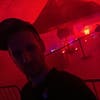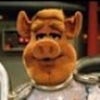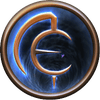Notes from a year of reading science fiction and fantasy [potentially minor spoilers]
Below are books I’ve read over the last year, with notes about on what I thought of them. I started this list just to remind me what the books were about and if I thought they were worth reading. As the year went on, my notes became a little more substantial. The list was for me, but I thought I’d share in case it’s useful to anyone. I recognize that it’s very subjective.
Project Hail Mary, WeirDon’t want to describe it even a little because spoilers would spoil; it’s a book you should read without knowing anything. It’s really good.
Fall, StephensonBillionaire scanned into a digital world, and the people around him in the real world. Interesting and thought-provoking.
The Ocean at the End of the Lane, GaimanLittle boy stumbles upon old magic and an old evil. Really good.
The Ultimate Earth, WilliamsonChildren on the moon are the latest in a long series of clones watching over the facility there, generations after the earth has all but forgotten them. A historian visits them.
The first four Discworld books, PratchettSilly fun - disc-shaped world that sits atop four elephants that stand on a giant turtle riding through space. Each book is in the world, but separate stories with mostly separate characters. Lots of magic, lots of humor.
Seven Views of Olduvai Gorge, ResnickLong after humans are extinct, a group of alien archeologists uncover the origins and stories of mankind through the stories told by artifacts found in Olduvai gorge. Very unusual.
A Memory Called Empire, MartineGalactic empire space opera. Ambassador from a large space station to the central planet of the empire has an old copy of her predecessor implanted in her head - a technology user for generations by the station people but not known to the empire. She wants to solve the mystery of her predecessor’s death. Character-driven discs opera.
A Desolation Called Peace, MartineSequel to prior. Mahit Dzmare and Three Seagrass help the empire confront an alien that. Good.
The first six Murderbot Diaries books, WellsSecurity unit - sort of a cyborg combination of a robot and cloned human tissue - has hacked the part that forces it to comply. It mostly wants to watch soap operas, but finds itself rescuing humans. Surprisingly funny and heartwarming. Mostly novellas, so quick reads.
The Kingston Cycle trilogy, PolkEdwardian setting where magic is real but people are put in institutions for it if discovered. Each book from the vantage point of a different person, the first a psychologist who uses his powers to help his patients and seeks to discover why a witch was murdered. First is best, but all are good.
Ancillary Justice, Ancillary Sword & Ancillary Mercy (imperial radch trilogy), LeckieFrom the perspective of a warship AI dealing with a galactic empire. Feels like it could have been an inspiration for murderbot. Good.
Annihilation, VandermeerA biologist is a member of a team trying to figure out what’s happening in an area where investigative teams generally don’t return from. Strangely paced, like a Lovecraft story. Wouldn’t recommend to everyone. Very weird.
Gideon the Ninth, MuirGirl raised by necromancers sent to protect the head of her world as they try to unlock the secrets of an old world. Surprised by how much I liked it.
The Spare Man, KowalThe Thin Man in space - murder mystery on a space-going cruise ship. Not very deep, but enjoyable.
Piranesi, ClarkMan Who lives in a world that is entirely a castle with endless halls and rooms, populated by just one other person, trying to understand his world. Interesting.
All Clear, WillisSequel to Blackout - historians from Oxford in 2060 use time travel to see events surrounding WWII in person, but something is wrong. Not as light as some of her books, but very good.
Blind Lake, WilsonReporters visiting a facility that uses incomprehensible AI-written systems to view life on a planet 50 light years away get caught in a lockdown that separates the people of the facility from the rest of the world. Very interesting.
Nettle and Bone, KingfisherFantasy - princess is sent to a convent, and eventually sets out to kill a powerful man who deserves it. Very enjoyable, and manages to be fun while also being dark.
Harrow the NinthSequel to Gideon the Ninth. First half is very confusing. Not an easy book to read, but well crafted and interesting.
WWW: Wake, SawyerBlind teenage girl gets a computerized implant to restore her sight and ends up connected to a budding consciousness in webspace. Neat idea and an easy read but some parts felt unrealistic or cheesy.
The Graveyard Book, GaimanBoy is raised in a graveyard by ghosts, protected by something else. Maybe written for teens, but wonderful regardless.
The Three Body Problem, LiuStrange things are happening in the scientific community in China. Interesting premise and an unusual book, but some things felt very unrealistic.
Saturn’s Children, StrossHumans built conscious robots to explore and develop the solar system, but they long outlast the now-extinct human race. Intrigue as one such robot gets in over her head.
The Anomaly, Le TellierA plane from Paris to New York takes off in March and lands after severe turbulence. Then the same plane, with the same people, lands again in June. Thought provoking with well drawn characters.
The Daughter of Dr. Moreau, Moreno-GarciaSame/similar setting as The Island of, but focused on the daughter of the doctor as he conducts his experiments and his patron grows dissatisfied. Enjoyable.
Leviathan Wakes, CoreyFirst book of The Expanse series. A war starting between people of earth, people who settled Mars, and people who settled the asteroid belt and stations. A missing person, and something strange happening. Really good.
Caliban’s War, CoreySecond Expanse book. A protomolecule-based monster/soldier kills a bunch of other soldiers and everyone thinks some other government is responsible. Also very good.
Halting State, StrossA bank robbery inside an online game gets the attention of the cops - and a lot of other people. Written in 2007, set in 2017. Very interesting, even just for its take on technology.
Glasshouse, StrossIn a distant future with ubiquitous wormhole technology, a man recovers from self-chosen radical memory deletion and joins a 30+ year experiment, but things aren’t what they seem.
System Collapse, Wells7th of the Murderbot Diaries. Starting basically where the 6th book ends, what to do with the colonists on the alien-infected planet, and what a rival company is trying to do.
2024
The Cloud Roads, WellsFantasy about a loaner who can shape shift into a sort of dragon and doesn’t know that he is. Enjoyable.
Passage, WillisA psychologist studying people who have had near death experiences joins a research project where they’re induced, trying to figure out what they’re for, what they mean. Good, but like a lot of Connie Willis books, there are too many people missing each other and too many misunderstandings. Still, very touching.
Gods of Risk, CoreyBook 2.7 of The Expanse (novella). Bobby’s nephew gets caught up in making drugs. Very short. Good.
Sundiver, BrinWritten in 1980, the first of the Uplift series. Set in a time when humans have found there are many other intelligent, space-fairing beings in the galaxy, but nearly all were “uplifted" by another race. Everyone debates whether humans were uplifted and then abandoned by some unknown race, or are a very rare case of natural evolution. All this is the backdrop, or the fabric, of a story about the discovery of life in the sun.
Transition State, LeckieSet in the same universe as the Imperial Radch trilogy, with a couple minor characters from that as minor characters here. A guy is found abandoned on a ship as a baby, raised by adoptive parents, but is always strange (including urges to dissect people that he never acts on). Who he actually is might shake the empire, including the treaty that keeps aliens from destroying humans. Really good.
The Serpent Sea, WellsSecond book of the Raksura series. The tribe (blanking on the word used internally) relocate to their ancestry home, a special giant tree, but it’s dying because its seed was stolen. They go looking for it and get into trouble. Good.
Abaddon’s Gate, CoreyBook 3 of The Expanse series. Rocinante crew gets hired to take a documentary crew to the ring made by the Venus protomolecule. All the other governments are sending ships too. Julie’s sister Clarissa plots revenge for her father.
Hominids, SawyerIn an alternate universe, a neanderthal quantum physicist doing an experiment ends up marooned in our universe. A weird little bit of religion in the middle, but pretty interesting overall and fun to read about the speculative modern neanderthal society.
The Time Ships, BaxterAuthorized sequel to “The Time Machine," by H.G. Wells. It’s strange, in a way, because I of course read Wells’ work in the modern era, though it was written in 1914. Part of the charm was reading his notions of time and his commentary on class divides from this time a hundred years later, when the author has no knowledge of what happened in the intervening century. Baxter’s sequel is written from this modern era, but from the perspective of the same protagonist. Many of the advances in the sciences are captured, but it feels oddly artificial to have them observed by our early 1900s hero. Still, it’s a very ambitious book, with a very broad scope, and much more commentary on the nature of man. Well worth reading.
Beggars in Spain, KressPeople gene modified to no longer require sleep basically become a separate race of people. Lots of commentary on socialism, community, charity, racism, individuality, and more. Very thought provoking.
Humans, SawyerSequel to Hominids. A love story and a commentary on our world as seen through the eyes of a different version. Also more on the neanderthal version of it. As an ex Catholic, having a main character be matter of factly Catholic feels weird. Enjoyable sequel though.
Blindsight, WattsStrange first contact story with an enigmatic alien and a spectrum of technology-modified humans. A lot of it is an exploration of what it means to have consciousness or intelligence, and of how we’re affected by language and communication. Not sure I’d call it enjoyable, but very interesting. Not a fluff piece by any means.
Startide Rising, BrinSequel to Sundiver, set a couple hundred years later. A ship crewed by humans and dolphins has found something that could have major ramifications for the galactic races, so they’re all fighting each other to get the earthlings. Very good, has aged well. Side note: I’m certain I read it when it came out in paperback, but I didn’t remember it at all.
The Churn, CoreyBook 3.5 of the Expanse series, a novella. Back story of Amos in Baltimore. It would have been a very different experience reading if I hadn’t seen the series version - it couldn’t disguise a main character because you actually see them. Semi-avoiding spoilers.
Leech, EnnesA doctor, one of many that share a group mind due to a parasite, finds its predecessor killed by a different type of parasite. Very strange, pretty dark. Thought provoking.
The Siren Depths, WellsThird book of the Raksura series. Moon’s birth court wants him back, against his will, and there’s a danger facing everyone. Just as good as the prior books.
Starter Villain, ScalziDown on his luck young man inherits his uncle’s villain business. Quick, fun read. Funny!
The Host, MeyerAlien possession told from the POV of the compassionate alien. It turns out that I’m a little bit of a book snob because, as I opened the book on my Kindle and saw the blurb about it being by the author of the Twilight series (sparkly vampires), I almost abandoned it. I decided to at least start it and… I didn’t hate it. The SF aspects of the story are actually pretty interesting and thought provoking. Given my understanding that Meyer is basically a romance novelist, I was surprised that the part I connected with the least well was the romance part - it’s described as way overly physical (this body loves that person or could never love that other person).
Provenance, LeckieIn the Imperial Radch series. Daughter in a scheming family tries a scheme of her own and gets mixed up in issues that span worlds and races. Interesting. Feels like a side story, which I guess it is.
Nona the Ninth, MuirThird of the Locked Tomb series, following Harrow the Ninth. I loved the first book, didn’t love the second (challenging, interesting, not sure it was enjoyable), and liked this one better. Ending needed to be reread a couple times - confusing - but overall an interesting book.
Perdido Street Station, MeivilleElements of SF and fantasy. Set in a Victorian world (future earth, or maybe an alternate one) populated by humans and many races of aliens, some more alien than others, a scientist is hired by a bird person to give him back fight after his wings were removed as a punishment by his people. While working the problem, the scientist releases something truly horrible. It’s a really evocative world and story, well imagined and well told. It brings up a lot of sadness, horror, and pity for its characters that didn’t really stop, so not exactly a fun read. Long, but good.
The Watchmen, MooreGraphic novel about masked heroes being popular, then outlawed, then being systematically eliminated. Gritty, odd. It deals a lot with what constitutes the greater good and what compromises are reasonable.
How to live safely in a science fictional universe, YuA time machine repair technician, hiding from life, tries to find his father who disappeared ten years prior, after almost inventing time travel. Amusing, short, quick read.
The City & The City, MievilleA murder victim is found in a European city that shares geography with another city. The cities aren’t separated by physical borders, they overlay and are separated by more of a psychic border, and crossing from one to the other that way, breaching, is a serious crime. The detective investigating the murder uncovers things that could shake the fabric of both cities, and he has to work with a detective in the sister city to solve the crime. Very unusual and imaginative premise. Very compelling story.
The Sirens of Titan, VonnegutIt’s Vonnegut, so it’s hard to know where to start. The richest man in the world tries to avoid a life that’s predicted for him. It doesn’t go the way he envisioned either way. Lots of commentary on morality, friendship, religion, love. Not flattering commentary on any of those things.
Neptune’s Brood, StrossSet in the same universe as Saturn’s Children. A banker/historian chasing down old debts finds much more than she bargained for and gets many factions out for her blood, including her mother. Lots of good speculation on a galactic society without FTL travel, composed of people who are fabricated, not Born.
The Scar, MeivilleFollowing Perdido Street Station, but not in the city and with different characters. A translator fleeing the city gets pulled into a series of unfolding conflicts while she tries to find a way home, or at least to save it. Lots of layers, and commentary on trust and manipulation.
The Long Way to a Small Angry Planet, ChambersA clerk running away from family on Mars signs onto a ship that builds wormholes, and gets a new family in the process. After recently reading books by Meiville, Vonnegut, and others, this was a more hopeful, loving story. The explanation for why all the aliens look like various earth species felt kind of thin, but it’s a good story with strong relationships.
Children of Time, TchaikovskyA project to uplift monkeys on a terraformed world, at the peak of human civilization, is sabotaged by people who don’t think humans should play god. There follows a human civil war that nearly destroys civilization. A couple thousand years later, an ark ship of human remnants leaving an uninhabitable earth is heading towards that terraformed planet. This is a great book, with lots to say on intelligence, the nature of people, and both the fragility and heartiness of life.




Add comment